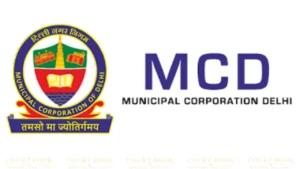The Supreme Court of India will hear on July 22, 2025, a crucial Presidential reference under Article 143 of the Constitution. The reference raises important constitutional questions relating to assent to bills by governors and the President, including whether courts can prescribe time-limits on such actions.
A Constitution Bench comprising Chief Justice of India BR Gavai, Justice Surya Kant, Justice Vikram Nath, Justice PS Narasimha and Justice AS Chandurkar will preside over the matter.
The Court said, "These questions are of grave constitutional importance and are directly related to the roles of the President and Governors under Articles 200 and 201."
Background
This reference comes after the Supreme Court's judgment in the Tamil Nadu Governor's case, in which the Court barred indefinite delay in granting assent to bills. The Court had ruled that:
Read also:- Supreme Court: Entire Appeal Fails If Legal Heirs of Deceased in Joint Decree Are Not Added in Time
“The Governor cannot exercise a 'pocket veto'; he must take a decision within three months.”
Additionally, if the Governor refers the bill to the President, the President must also act within three months. The Court emphasised that if these timelines are not adhered to, the state government can file a mandamus petition in the Court.
In the same judgment, the Supreme Court had held that ten Bills kept pending by the Tamil Nadu Governor for more than a year were deemed to be assented.
However, the Vice President of India strongly criticised the judgment. He questioned the power of the judiciary to issue directions to the President and described the use of Article 142 as a "nuclear missile" by the judiciary.
Read also:- Supreme Court Questions BCI on Relaxing AIBE Fee for Poor Law Graduates
The Presidential Reference presents 14 key legal questions, including:
"Can courts judicially prescribe time limits for constitutional actions of the President and Governors?"
Some of the key questions raised are:
- Options of the Governor: What options does the Governor have when a Bill is presented to him under Article 200?
- Aid and advice: Is the Governor bound by the advice of the Council of Ministers in all circumstances?
- Judicial review: Can courts review the discretion of the Governor under Article 200?
- Article 361: Does it bar judicial scrutiny of the Governor's actions?
- Time limits by the judiciary: Can courts prescribe time limits where no time limits are specified in the Constitution?
- Powers of the President: Are decisions of the President under Article 201 also subject to court review?
- Article 143: Must the President seek the advice of the Supreme Court when a Bill is reserved?
- Pre-enactment review: Can courts review a bill before it becomes law?
- Role of Article 142: Can this article be used to strike down other constitutional provisions?
- Validity of state laws: Is a law valid without the assent of the governor?
- Interpretation of Article 145(3): Should a five-judge bench decide whether the case involves any substantial constitutional question?
- Scope of Article 142: Does it extend beyond procedural remedies?
- Dispute resolution: Is Article 131 the only way to resolve Union-State disputes?
Read also:- SC Criticises High Courts for Granting Undue Interim Relief in SARFAESI Cases
The case will clarify the delicate constitutional balance between the executive and the judiciary and define the scope of judicial intervention in legislative processes.















